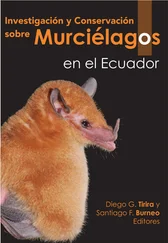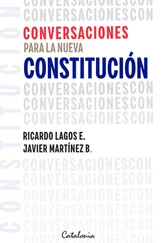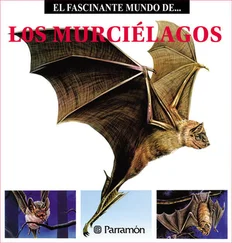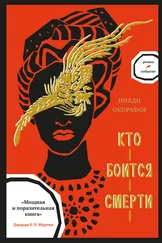Ннеди Окорафор - Lagos Noir
Здесь есть возможность читать онлайн «Ннеди Окорафор - Lagos Noir» весь текст электронной книги совершенно бесплатно (целиком полную версию без сокращений). В некоторых случаях можно слушать аудио, скачать через торрент в формате fb2 и присутствует краткое содержание. Город: New York, Год выпуска: 2018, ISBN: 2018, Издательство: Akashic Books, Жанр: Детектив, на английском языке. Описание произведения, (предисловие) а так же отзывы посетителей доступны на портале библиотеки ЛибКат.
- Название:Lagos Noir
- Автор:
- Издательство:Akashic Books
- Жанр:
- Год:2018
- Город:New York
- ISBN:978-1-61775-523-1
- Рейтинг книги:4 / 5. Голосов: 1
-
Избранное:Добавить в избранное
- Отзывы:
-
Ваша оценка:
- 80
- 1
- 2
- 3
- 4
- 5
Lagos Noir: краткое содержание, описание и аннотация
Предлагаем к чтению аннотацию, описание, краткое содержание или предисловие (зависит от того, что написал сам автор книги «Lagos Noir»). Если вы не нашли необходимую информацию о книге — напишите в комментариях, мы постараемся отыскать её.
Lagos Noir — читать онлайн бесплатно полную книгу (весь текст) целиком
Ниже представлен текст книги, разбитый по страницам. Система сохранения места последней прочитанной страницы, позволяет с удобством читать онлайн бесплатно книгу «Lagos Noir», без необходимости каждый раз заново искать на чём Вы остановились. Поставьте закладку, и сможете в любой момент перейти на страницу, на которой закончили чтение.
Интервал:
Закладка:
Today the technician was quiet. He pushed the cob along the dark midline of Bisola’s stomach. He paused, probed again. Bisola turned her eyes from the screen and worked out that baby may have forgotten his dance steps today. The technician left the room and returned with a nurse. The nurse made the technician move the cob up and down again, studying the screen all the while. She finally turned to Bisola and helped her sit up. Baby wasn’t breathing, the woman said. There was no heartbeat.
But Bisola said it couldn’t be. Only last night she had dreamed of baby, with a full head of hair like his father, small wet lips, and short slender fingers. She had dressed him in a jumper made from wax print and greased his hair with Vaseline mixed with palm kernel oil. He was colored a little like a grapefruit. He liked to be fed all the time and slept little. When he slept he made fists with his hands. Baby showed her these things because he wanted there to be an understanding between them before he made his appearance. He knew she knew little about babies, had learned nothing in the last forty-something years she’d been without a husband. Baby knew, baby knew. The cob machine was just something to make him dance when he pleased. And today, right where they sat across from this nosy screen, baby wanted a rest from sending last night’s message.
The nurse led Bisola to see the doctor, who examined her on a gurney and finally wrote her a prescription. Still explaining that these things happened without warning, to women across all ages and ethnic groups, the nurse held Bisola’s hand and led her down the blocks to the pharmacy. She told the story of her own niece, whose baby had been dead two weeks in her womb before the cob machine found out. Her niece had gone on to have three healthy children after that. So there was yet hope if Bisola took care of things early enough to start over. The pharmacist handed her a transparent pouch containing two small white tablets, each one six-sided with a thin vertical groove in the center. Bisola asked the nurse on their way out, “What’s the medicine for, na?”
“It’s to make your womb soft. Take them this evening and come back in two days like the doctor said.”
In the zinc shed, before they packed up her batter pans for the day, Bisola told Osei what the hospital people had said about baby and his dancing. Osei took the pouch from her and said he was throwing away the medicine. Bisola agreed, surprised he could still read her mind this quickly despite the four years and eight months they’d been married. Perhaps that was what these younger men were good for, especially when one single-handedly set up their barbershops, bought them motorcycles, and kept them well fed and clothed.
First he read her mind about throwing away the medicine. Next he read her mind about getting a prayer ticket from the once-dead pastor who advertised on the radio. Hence, the next day, before she went to open up shop at the Power Joint, Osei rode her to the defunct factory site. He waited outside to get some fresh air as she received an initial analysis from the pastor, as well as a prayer schedule.
Two days down, one to go.
Bisola shuffled down the line of chairs in the anteroom, taking the yams and chicken as she went.
As she settled her hand yet again on her middle, she saw there was a commotion to her right — people arguing about a seat. It was Osei, speaking in placating tones to a burly man who was next in line after Bisola. He explained that Bisola was his wife and they were together. The man finally shrugged and Osei approached. Bisola saw the fresh sheen of his reapplied hair grease, the soft curve of his just-fed belly showing beneath his shirt. She felt panic that he had cut short his air-taking time just as she was close to entering the pastor’s office. As he sat next to her, she gently nudged his side with her elbow and smiled tiredly.
He held the food flask in his lap, looking straight ahead. “Bisi, I ate the akara and gizzards.”
She nodded. “You were hungry.”
“Yes. But there’s some left.”
“We’ll eat that when we get home.”
“Yes, to celebrate.”
They shifted down three more seats within forty minutes, till Bisola was next in line and the enforcer waved her ahead. Bisola was conscious of Osei breathing heavily behind her as they entered the pastor’s office, his shoes dragging in postmeal stupor. A woman materialized and shut the door after them. She had a face Biosla knew well: the pastor’s attendant, dressed in a brown frock belted in the middle with a smooth black sash. A tall woman with a muscled visage, she seemed to have an established camaraderie with Bisola, to whom she spoke cordial words of welcome. She accepted the chicken and yams, saying, “The pastor will see you now.”
The office itself was orange-lit from the drawn curtains and fat candles burning from the floor corners. In the middle stood the only furnishing: a sprawling altar the size of two standard desks laid side by side. It was decked in white cloth, with a leather-bound Bible and sixteen candles along the rim. A cubicle cordoned off with hospital-blue curtains was stationed on left side of the table, and it was from here that the pastor materialized. He swept aside the blue cloth with one hand, stepping into the orange light with short thudding strides. Immediately, Bisola took off her shoes and kneeled before him, hands upraised. “Pastor!”
“Daughter Bisola,” the man said in a lazy, syrupy voice that seemed to make the candle flames hold still for an instant. He was a man of average height with strangely large hands. His eyes sat deep in his face so that when they roved in his head, he looked like a toy straining against tight screws. He drew closer, placed a hand on Bisola’s head as he muttered a few words: “Glory, glory. Our God has conquered death.”
Bisola cried out, “Save my baby, Pastor!”
“Your baby lives if God says so. I’ve already told you that, daughter Bisola. Get up.”
Panting, Bisola stood.
The muscled attendant in the frock came forward. “Place the money on the altar,” she said.
Bisola reached into the neckline of her dress and pulled out a wad of notes from where she’d tucked them into her brassiere. She deposited the rolls on the table, then started straightening the bills with shaking fingers.
Osei, who until now had been rooted to a spot not far from the door, hurried forward to help Bisola.
“Leave it.” The pastor waved a hand and turned to the attendant. “Is the water ready?”
Between the altar and a fat candle in a corner was a large plastic tub, large enough to hold a squatting adult. A pail of water sat by the tub, and a small scoop floated on the surface like a miniature boat. As if she understood what was required of her, Bisola began to lift her dress over her head. Osei’s lips flapped like a fish out of water. Without thinking, he took a step toward Bisola, but the pastor’s voice stopped him.
“Ah, the husband. Isn’t she doing this for the both of you?”
Bisola stood stiff in a half-slip and thick-strapped brassiere. The attendant led her by the hand as they circled the altar three times in long strides. After the third round, they were back to their earlier spot before the plastic tub. The pastor raised a song, “Behold the resurrecting power of the Almighty,” as Bisola stepped into the tub and kneeled. The attendant gently peeled off her half-slip and brassiere, and Osei watched as parts he thought were known only to him — Bisola’s hulking breasts pinnacled with dark-brown areolas; her hairy thighs, gnarled as old forest trees; her stout buttocks, his volleyballs — all tumbled out of her underwear in the full gaze of the pastor and the woman in the brown frock.
The frocked woman was the one who doused Bisola with holy anointing oil before pouring the water from the pail over her. The pastor paused his singing. “Wait, let the husband do that,” he said.
Читать дальшеИнтервал:
Закладка:
Похожие книги на «Lagos Noir»
Представляем Вашему вниманию похожие книги на «Lagos Noir» списком для выбора. Мы отобрали схожую по названию и смыслу литературу в надежде предоставить читателям больше вариантов отыскать новые, интересные, ещё непрочитанные произведения.
Обсуждение, отзывы о книге «Lagos Noir» и просто собственные мнения читателей. Оставьте ваши комментарии, напишите, что Вы думаете о произведении, его смысле или главных героях. Укажите что конкретно понравилось, а что нет, и почему Вы так считаете.
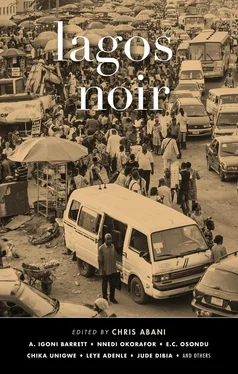
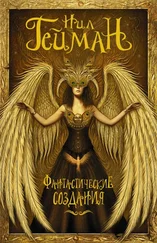


![Ннеди Окорафор - Бинти [litres]](/books/399229/nnedi-okorafor-binti-litres-thumb.webp)
![Ннеди Окорафор - Кто боится смерти [litres]](/books/401080/nnedi-okorafor-kto-boitsya-smerti-litres-thumb.webp)

